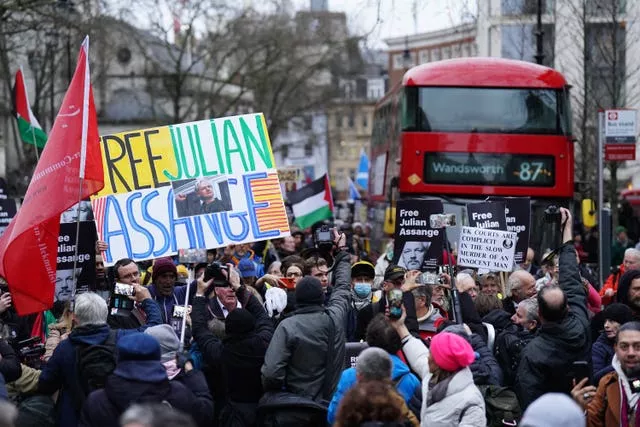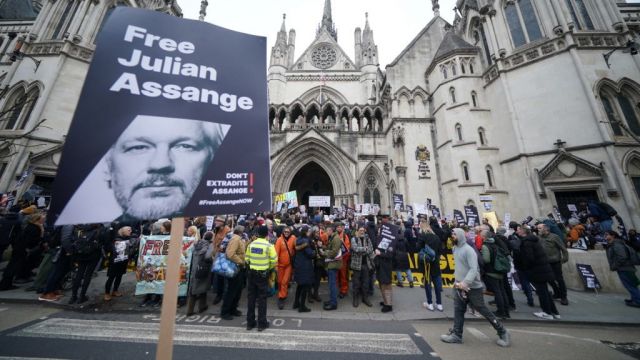The United States must give assurances that Julian Assange will not face the death penalty before judges will consider dismissing the WikiLeaks founder’s bid to bring an extradition appeal, the UK high court has ruled.
Assange faces prosecution in the US over an alleged conspiracy to obtain and disclose national defence information following the publication of hundreds of thousands of leaked documents relating to the Afghanistan and Iraq wars.
In a January 2021 ruling, then-district judge Vanessa Baraitser said that Assange should not be sent to the US, citing a real and “oppressive” risk of suicide, while ruling against him on all other issues.
Later that year, US authorities won their High Court bid to overturn this block, paving the way towards Assange’s extradition.

During a two-day hearing in February, lawyers for the 52-year-old asked for the go-ahead to challenge the original judge’s dismissal of other parts of his case to prevent his extradition.
In a judgment on Tuesday, Dame Victoria Sharp and Mr Justice Johnson dismissed most of Assange’s legal arguments but said that unless assurances were given by the United States he would be able to bring an appeal on three grounds.
These assurances are that Assange would be protected by and allowed to rely on the First Amendment – which protects freedom of speech in the US, that he is not “prejudiced at trial” due to his nationality, and that the death penalty is not imposed.
The judges said the US authorities had three weeks to give those assurances, with a final hearing potentially taking place in late May.
At the start of Assange’s bid last month, Mark Summers KC argued the US’s prosecution would be retribution for his political opinions, meaning it would be unlawful to extradite him under UK law.
However, the two judges rejected this argument.
Dame Victoria said: “The applicant’s case before us amounts simply to a reassertion of his case on this issue, and a disagreement with the (district) judge’s conclusion.
“It does not engage with the judge’s reasoning. Far less does it identify any flaw in her factual conclusions.”
The hearing at the Royal Courts of Justice was attended by dozens of journalists and members of the public, with hundreds observing remotely.
On Tuesday, dozens of people stood outside the central London courthouse to await the judgment, holding placards bearing the message “Free Julian Assange” and chanting “There is only one decision, no extradition”.







